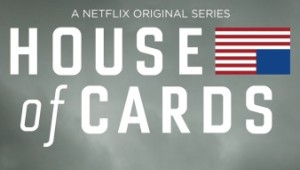Internet comments seem to be the subject of criticism that won’t go away. Hell, even Reddit is launching a new news site that won’t allow commenting.With comments often loaded with harassment, trolling, highly offensive language, and sometimes threats, it’s clear why some see comment sections to be a failure and offering little value to a site to continue. One of the latest sites to remove comment sections from its content is Motherboard, a publication of Vice. Motherboard’s Editor-in-Chief, Derek Mead, announced the removal of comments with the headline “We’re Replacing Comments With Something Better”. I clicked, curious to see what this “something better” was, and to find out whether or not it would turn out to be better.
Good moderation is valuable, and it requires companies treat moderators as more than simple comment police. Moderators are integral to the growth of communities, especially when moderators may be the first line of contact in the community team chain, depending on the side of your company or site. To get that quality, it has to be built into your operating costs. Many companies don’t cultivate community teams and invest in community development, backed up with sufficient funding to have good moderation and allow community managers and team members to spend a larger part of their days within the community instead of being marketing evangelists.
What Motherboard is doing is taking the comments section and instead of letting people comment as before, they have an open email address and other methods of communication for those who feel compelled to submit feedback. Making some effort a requirement on the behalf of the heretofore commenter in order to submit feedback is but one step that will probably reduce feedback, but might increase its quality.
The announcement noted that Motherboard’s staff had been contemplating the move for a year, and noted that those who justify comment sections note that when they are well-moderated, the cream can be filtered to the top and much of the harassment and noise can be eliminated. In other words, well-moderated comment sections provide value.
However, the announcement also included one important acknowledgment. Motherboard wants to devote its resources to content, meaning that it’s a direct admission that good moderation takes resources.
The argument for comments has long been that a well-moderated section lowers the barrier to entry for readers to share their thoughts, positive or otherwise. In a vacuum, that sounds like a dream, but the key there is “well-moderated.” Good comment sections exist, and social media can be just as abrasive an alternative.
Good moderation is an investment in people in your comments sections and in your communities who know your community members well, and can anticipate their needs, know their methods of expression, and serve their usage patterns.
Motherboard will select from received feedback once a week, the site will publish some of what the staff deems the most insightful comments. On the one hand, that is a form of moderation, but it’s after the fact, time has passed, the comment may no longer be topical, and it cuts off something very important when it comes to communities: interaction between people. This is, in effect, a version of the old “Letters to the Editor” segment of the newspaper. Letters to the Editor sections still exist, but the format that arose and, arguably took over, were internet comment sections. What Motherboard’s decision feels like is a potential step backward.
The people most in favor of closing comments seem to be those who will say you have a blog, a Facebook or Twitter account, so you can respond however you’d like, on your own spaces. These decentralized methods of responding to the same source material are still needed, but one hopes such decentralization is not the result of passing the buck.
By cutting off the immediacy of response and by dragging a wedge between users, a screen, between your audience members, you leave no room for a community to grow. Motherboard, in acknowledging the importance of good moderation and still dumping comments with a statement about redirecting its resources into content, is openly declaring quality moderation something not worth investing in for the site. Direct community building may not be ideal for some companies after all. Yet many sites do not want to make the investment in a good moderation and community team, instead preferring to pass the responsibility over to social media and blogging platforms. In other words: not our problem, but have fun when your users make it yours.


